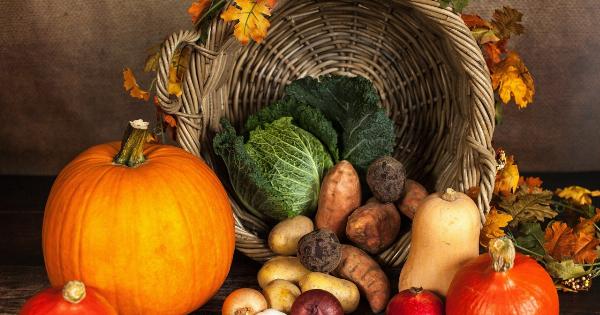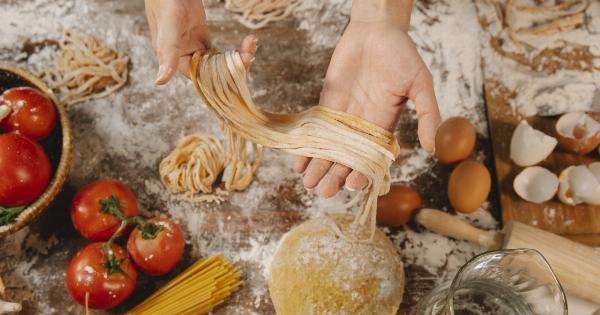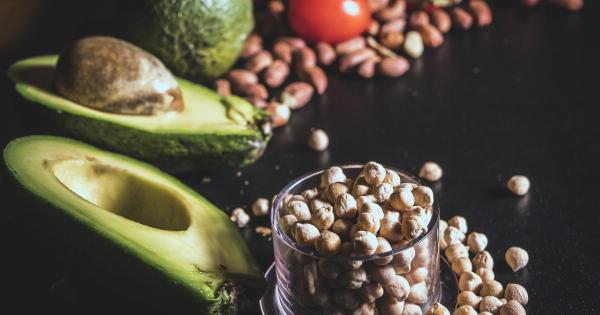Fruits and vegetables are an essential part of a healthy diet. They provide us with vitamins, minerals, and other nutrients that help keep our bodies functioning properly. However, it can sometimes be challenging to keep them fresh for an extended period.
If you want to know how to store your fruits and vegetables optimally, this self-help guide is for you. In this article, we’ll cover some tips and tricks for keeping your fruits and vegetables fresh for as long as possible.
1. Store your fruits and vegetables separately
Fruits and vegetables release different gases, so it’s best to store them separately. When they are stored together, the fruits might release ethylene gas, which can cause the vegetables to spoil faster.
To prevent this from happening, store your fruits and vegetables in separate drawers in your refrigerator.
2. Keep your fruits and vegetables dry
Moisture can cause your fruits and vegetables to rot quickly. Therefore, it’s essential to keep them dry. You can do this by gently wiping them with a clean cloth or paper towel before storing them in the refrigerator.
Make sure they are completely dry before storing them.
3. Use airtight containers or bags
When storing your fruits and vegetables in the refrigerator, use airtight containers or bags to prevent air from circulating around them. Air circulation can cause them to spoil quickly.
You can use ziplock bags or airtight containers to store your fruits and vegetables. It’s also a good idea to label the containers or bags with the name of the fruit or vegetable and the date of purchase.
4. Keep your fridge clean
Clean your refrigerator regularly to minimize the growth of bacteria that can cause your fruits and vegetables to spoil. Wipe down the inside of your refrigerator with a clean cloth and warm, soapy water at least once a month.
Make sure to clean the vegetable drawers thoroughly.
5. Don’t wash your fruits and vegetables before storing them
You might be tempted to wash your fruits and vegetables before storing them, but that’s not a good idea. Water can cause them to spoil quickly. Instead, wash them right before you eat them. This will help keep them fresh for a longer period.
6. Know which fruits and vegetables are ethylene-sensitive
Some fruits and vegetables are more sensitive to the ethylene gas released by other fruits. These include:.
- Apples
- Avocados
- Bananas
- Cantaloupes
- Honeydew melons
- Nectarines
- Peaches
- Pears
- Plums
- Tomatoes
If you have any of these fruits in your refrigerator, store them in a separate compartment away from other fruits and vegetables.
7. Keep potatoes and onions separate from other vegetables
Potatoes and onions should be stored separately from other vegetables. They can release moisture that can cause the other vegetables to spoil quickly. You can store potatoes and onions in a cool, dry place like a pantry or a cabinet.
8. Freeze your fruits and vegetables
You can also freeze your fruits and vegetables to keep them fresh for an extended period. Cut them into small pieces or slices before freezing them. This will help them freeze more quickly.
You can use freezer bags or airtight containers to store them in the freezer. Make sure to label the bags or containers with the name of the fruit or vegetable and the date you froze them.
9. Consume your fruits and vegetables before they spoil
Even with the best storage techniques, your fruits and vegetables will eventually spoil. Therefore, it’s essential to consume them before they do. You can monitor their freshness by checking them regularly.
If you notice any signs of spoilage, like mold or a bad smell, dispose of them immediately.
10. Buy your fruits and vegetables in small quantities
If you buy your fruits and vegetables in large quantities, they might spoil before you can consume them all. Therefore, it’s better to buy them in smaller quantities and store them properly.
This will help ensure that they stay fresh for as long as possible.































